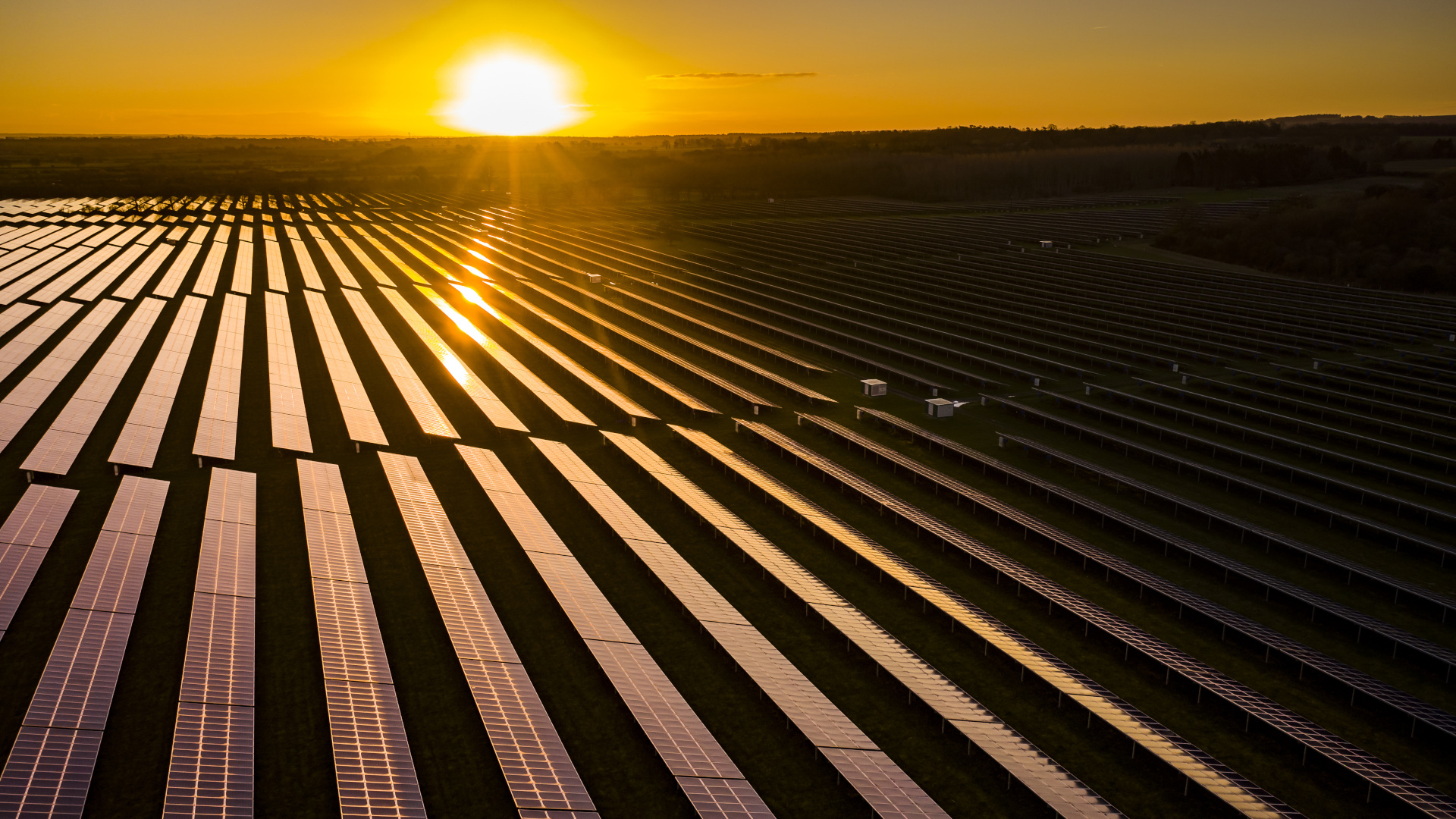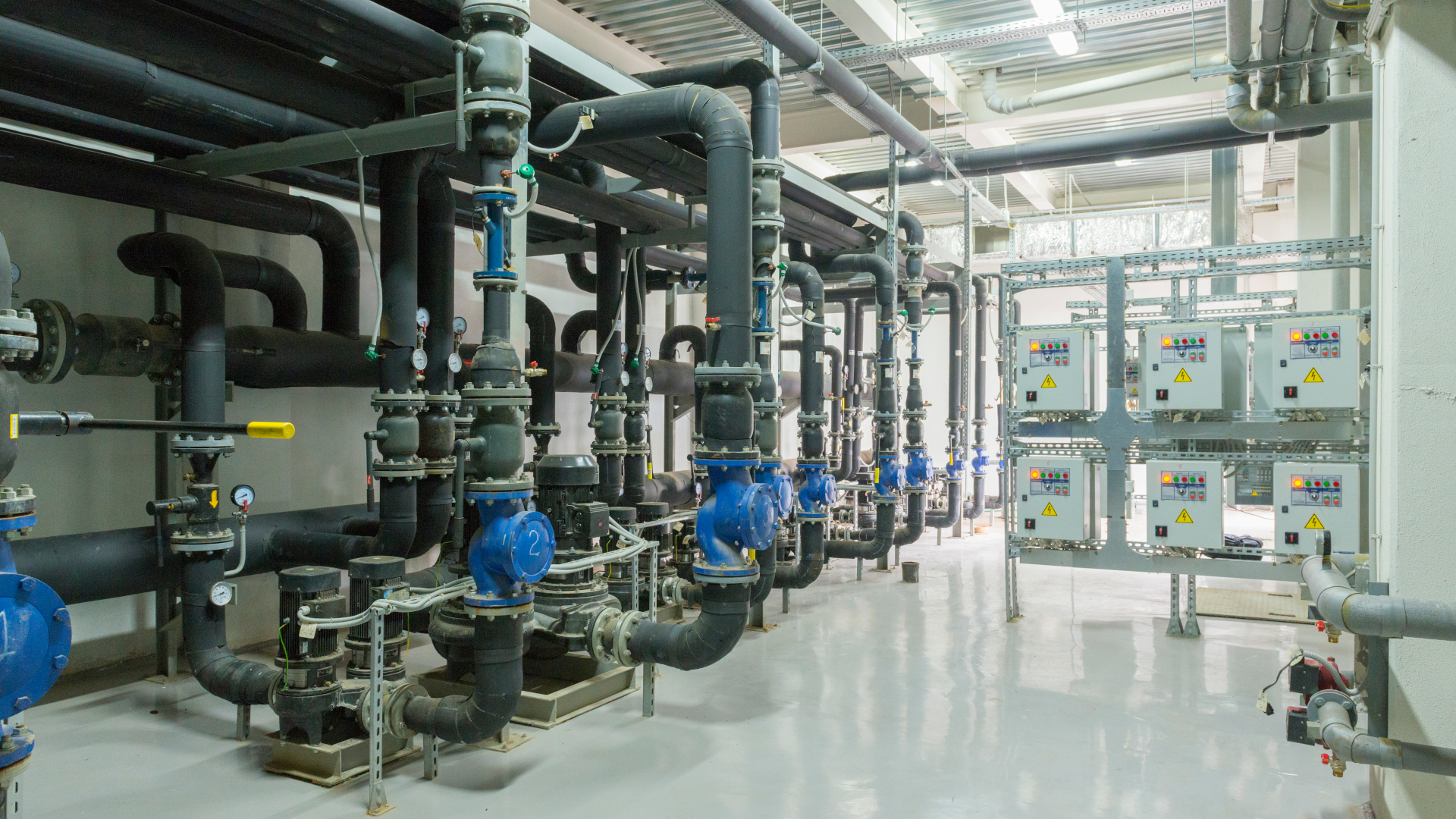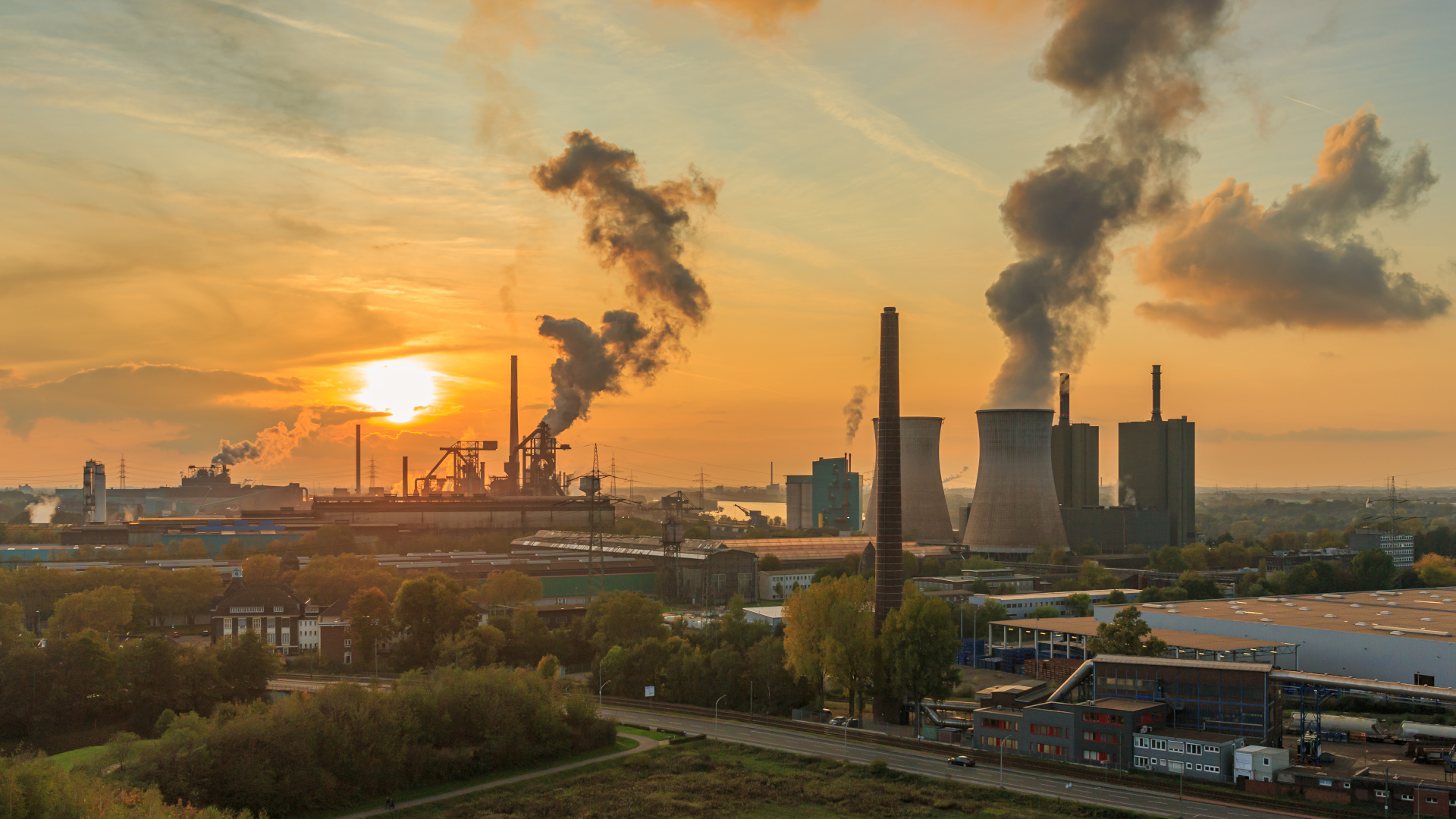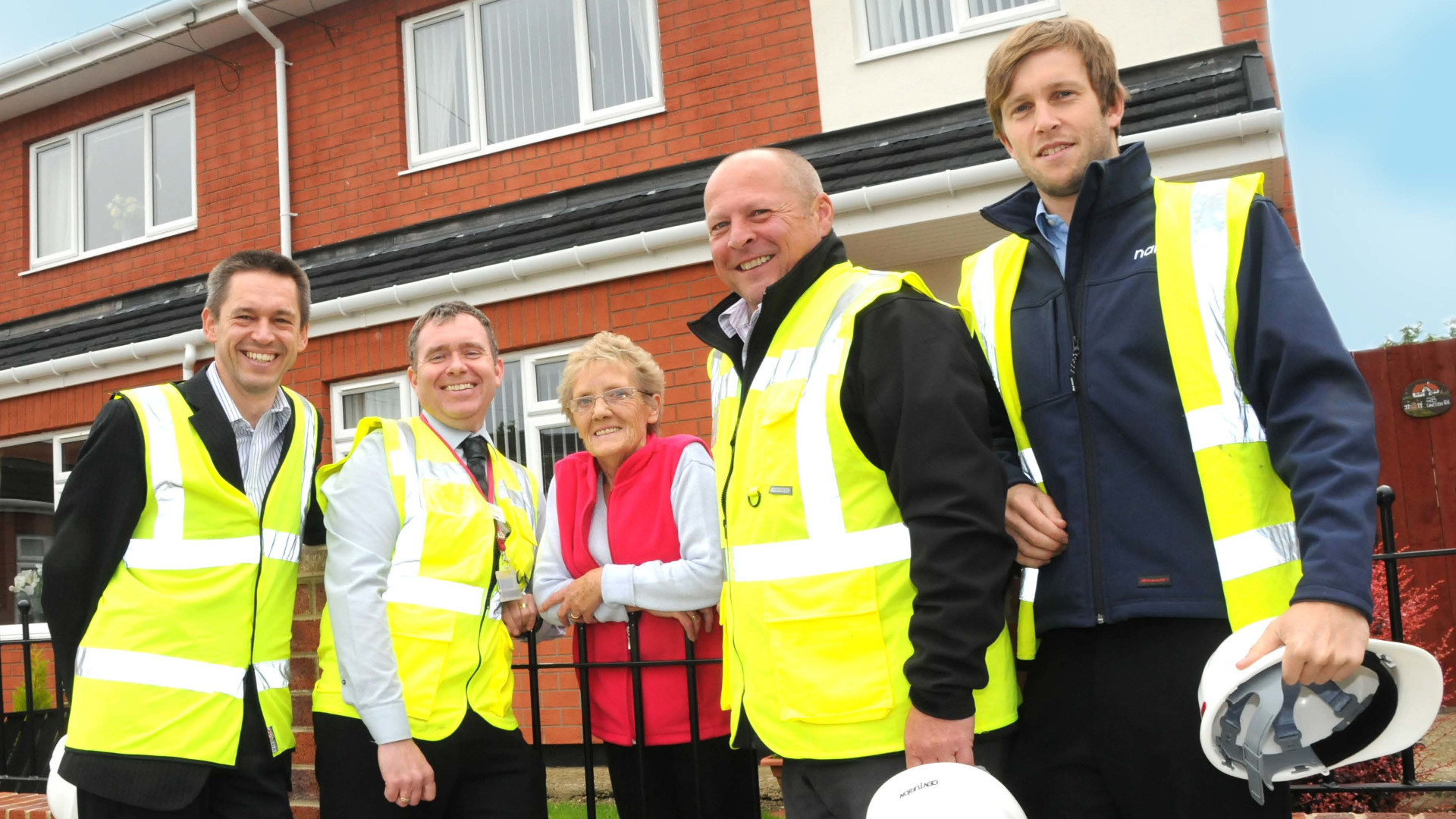Residents from Marsden, South Shields have this week opened their newly refurbished homes to show-off energy efficiency improvements and renewable energy technologies, installed as part of a collaborative £1.9m European Regional Development Funded (ERDF) Project.
A total of 136 ‘Tarran Newland’ – non-traditional construction – socially rented, post-war properties, managed by South Tyneside Homes are planned for improvements in South Shields. To date, 51 homes have been fitted with PV panels, loft and external wall insulation, and energy efficiency boilers as part of measures which are estimated to deliver heating savings of up to £800 per year and electricity bill savings of £200 per year for residents.
Lincoln Road and Marsden Lane in South Shields is one of three areas benefitting from the ERDF project being managed by the National Renewable Energy Centre. 3 high-rise blocks of flats in Jarrow, Tyne and Wear and 54 Homes for Northumberland properties, in Blyth, Northumberland have also been selected for energy efficiency improvements and are being fitted with solid wall insulation, smart meters and secondary heat exchangers.
Beryl Chapman, a Marsden resident from South Shields said, “The external wall insulation which has been fitted has really improved the look and feel of my home. I am also noticing a reduction in my energy bills since the improvements have been made; this is because the house is so well insulated I don’t need to have the central heating turned on very often. The house is much warmer and more comfortable to live in too.”
The project aims to lift local residents out of fuel poverty, while reducing carbon emissions and improving the quality of life of residents.
ERDF funding is helping to take hundreds of vulnerable families out of fuel poverty. This project is part of long-term investments being made by South Tyneside Homes to provide more cost-efficient homes for tenants.
The Decent Homes improvement work to non-traditional homes is one of our biggest and most challenging programmes. The feedback that we have had from tenants is very positive, not just about the new internal improvements, but also how the external work has improved the thermal efficiency of their homes. We were delighted to show representatives from Narec and other companies the examples of best practice and partnership working we are adopting, and how the on-going works have improved people’s lives, as well as estates.
Mark Whittle, Director of Investment, South Tyneside Homes
The effectiveness of modifications and their impacts on the behaviour of residents such as the energy required to heat a home to an adequate level and the number of residents lifted out of fuel poverty are being monitored and the data analysed by the National Renewable Energy Centre (Narec). This greater understanding will help to inform future improvements in relation to the performance and utilisation of low carbon, innovative energy products as well as how best to apply low carbon products in socially rented prefabricated properties.
Helen Hampson, Microrenewables ERDF Project Manager, Narec explains,
The data is being collected over a 2 year timeframe to provide greater knowledge of the impact of these microgeneration technologies and efficiency improvements in improving the existing housing stock and this learning will be applicable to social landlords, local authorities and private homeowners. This project also relates to the soon to be launched Coalition Government’s flagship Green Deal project which encourages improvements to be made to properties which will save energy and reduce costs. Both initiatives will make a significant improvement to the energy efficiency of North East homes and help tenants to make substantial energy savings.
Helen Hampson, Microrenewables ERDF Project Manager, Narec
As part of the project local businesses are also being given the opportunity to visit the properties so they can see first-hand the houses at various stages of development and improvements being made. It is hoped that this will help to generate a greater understanding of new technologies and their application and encourage more businesses to expand or diversify into the microgeneration and low carbon technology market.
The project will benefit from £1.9m of investment from the European Regional Development Fund (ERDF), managed by the Department for Communities and Local Government. The ERDF Competitiveness Programme 2007-2013 is bringing over £300m into the North East to support innovation, enterprise and business support across the region.
Notes to editor
The Project
The National Renewable Energy Centre (Narec) is working in collaboration with South Tyneside Homes and Homes for Northumberland to make energy efficiency housing improvements in over 300 socially rented hard-to-treat properties.
The total value of the investment which includes ERDF and match funding provided by South Tyneside Homes and Homes for Northumberland is £3.83m. The ERDF funding received was to install low carbon and renewable energy technologies and systems into selected properties helping to improve the housing stock in the region and regenerate off-gas or non-traditional construction properties. The impacts of the interventions are also being monitored and analysed as part of the project.
As Project Manager, Narec is responsible for delivering the following:
- Management of cash flows and outputs, project claims and payments;
- Facilitation of joint procurement activity;
- Product testing and monitoring;
- Dissemination of project outcomes;
- SME engagement;
- Delivery of capacity building and skills activity with SMEs.
Project completion date is November 2013 with project outcomes expected to include:
- Retrofit of low carbon products in over 300 properties;
- Reduction of fuel poverty for residents in over 300 properties;
- SME assistance to improve skills development and performance;
- Jobs created and safeguarded.
The analysis of the data collection and reports on the impacts of the interventions will be published in the pre-works report on the 31st August 2012.
The Green Deal
The Green Deal will provide support to homeowners who cannot achieve significant energy savings without an additional or different measure of support. Under the Green Deal there is no need to pay upfront for energy efficiency measures and instead the cost of the measures should be covered by savings on the electricity bill. For further information visit:
http://www.decc.gov.uk/en/content/cms/tackling/green_deal/green_deal.aspx
South Tyneside Homes
South Tyneside Homes (STH) is an arms-length management organisation (ALMO) which manages the housing service on behalf of South Tyneside Council.
STH manages 18,949 homes through a Board that is made up of four tenants, four council nominees and four independents. The day-to-day running of the company is delegated to a senior management team, headed by a Chief Executive. It manages the Council’s Housing Revenue Account budget of £45.5m and £14.7m capital programme budget. It receives an annual management fee of £9.2m to manage homes on behalf of the Council.
STH are part of the ERDF Social Housing Energy Management project consortium with Homes for Northumberland and Narec.
Homes for Northumberland
Homes for Northumberland manage Council housing stock in the former Blyth Valley Housing and Alnwick District Council areas.
Homes for Northumberland manage homes on behalf of Northumberland County Council under the terms of a formal Management Agreement.
This agreement sets out the functions and the standards of service that are to be provided. Tenants and leaseholders living in the homes which the company manages are tenants or leaseholders of the Council.
Homes for Northumberland are part of the ERDF Social Housing Energy Management project consortium with South Tyneside Homes and Narec.
Contact
For further information please contact Helen Edge, Marketing Executive, Narec.
Email – helen.edge@narec.co.uk
Tel – 01670 357602
ERDF Funding
Narec has formed a consortium with South Tyneside Homes and Homes for Northumberland to deliver this project.
The project will benefit from £1.9m of investment from the European Regional Development Fund (ERDF), managed by the Department for Communities and Local Government. The ERDF Competitiveness Programme 2007-2013 is bringing over £300m into the North East to support innovation, enterprise and business support across the region.









